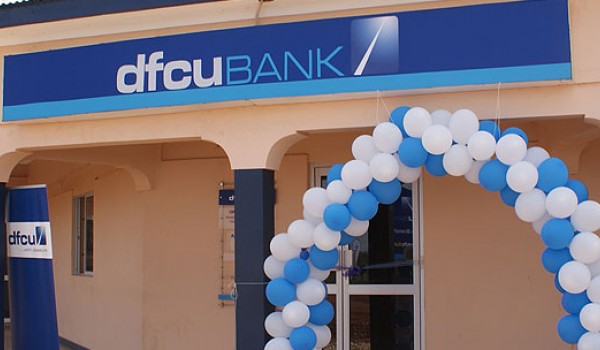Dfcu Bank has cut its dividend payout by more than 60 per cent for the period ended December 2020 due to the need to reserve capital to withstand and absorb shocks that may crop up as a result Covid-19.
The cut means that shareholders will receive just Shs17.38 for each share or a cumulative total of Shs13b for the period under review compared to Shs50 that the bank had paid out since December 2018.
Speaking during the bank’s annual general meeting in Kampala, Ms Kate Kiza, the dfcu Bank chief financial officer, said the reduction in share earnings was due to the need to retain some money for the conservation of capital to assist in recovery and absorbing shocks.
“We are among the Domestic Systemically Important Banks. So, we must be strong with high capital. Covid-19 is still affecting the economy. So, we need to preserve some funds as our capital for any eventualities,” she said.
The Central Bank considers dfcu, including Stanbic, Standard Chartered, Centenary and Absa, as some of the banks, whose financial health is critical to the wellbeing of the economy.
In April, the Central Bank said the five banks accounted for 57 per cent of total banking sector assets, noting that despite a challenging environment they were adequately capitalised, held sufficient liquidity buffers and were profitable over the period.
Last year Bank of Uganda asked all supervised financial institutions to defer dividend and discretionary payments in order to preserve capital for the real economy.
Mr George Ochom, the dfcu Group general manager, said over the past five years dividend earning per share had been good but the impact of Covid-19 had presented some challenges with the company’s counter at the Uganda Securities Exchange being illiquid because of low activity.
Therefore, he said, this had seen the counter’s total turnover reduce to just Shs6m by December 2020.
Dr Elly Karuhanga, who also announced his retirement as the dfcu chairman, said the performance of equity markets had seen a number of investors pull back from stocks leading to a 73.6 per cent decline in turnover at the Uganda Securities Exchange.
However, he said equity markets had shown signs of a rebound this year and have picked up with a positive 2.3 per cent price movement of the all share index in the first quarter of 2021 compared to a 27.9 per cent decline in 2020.
